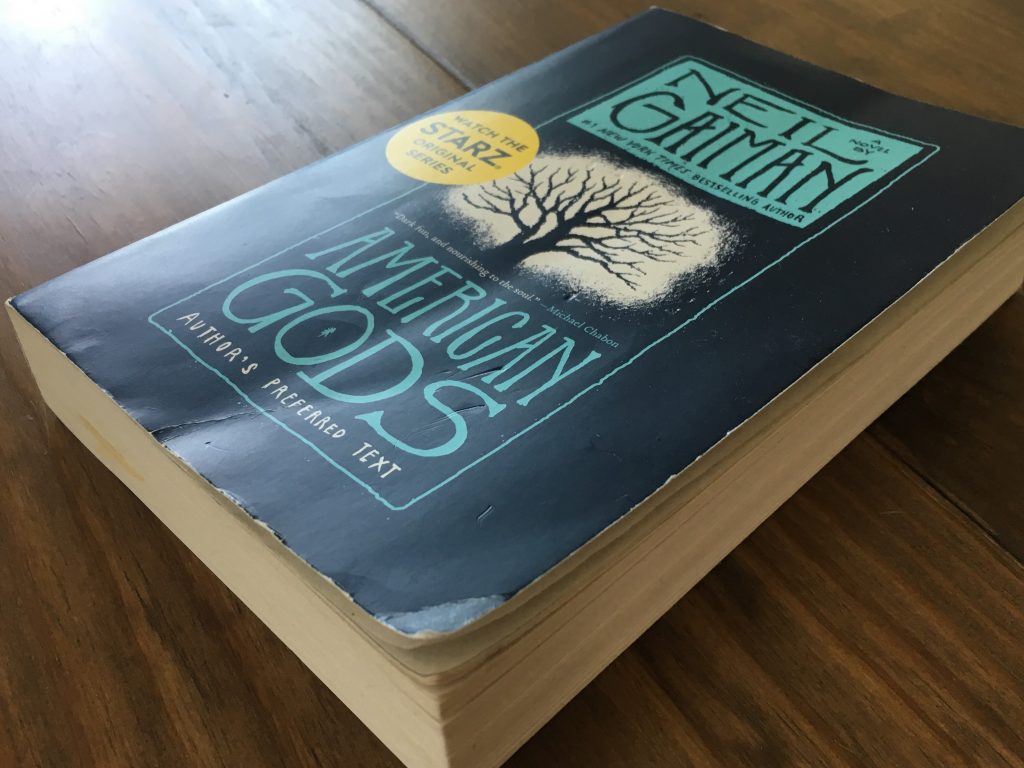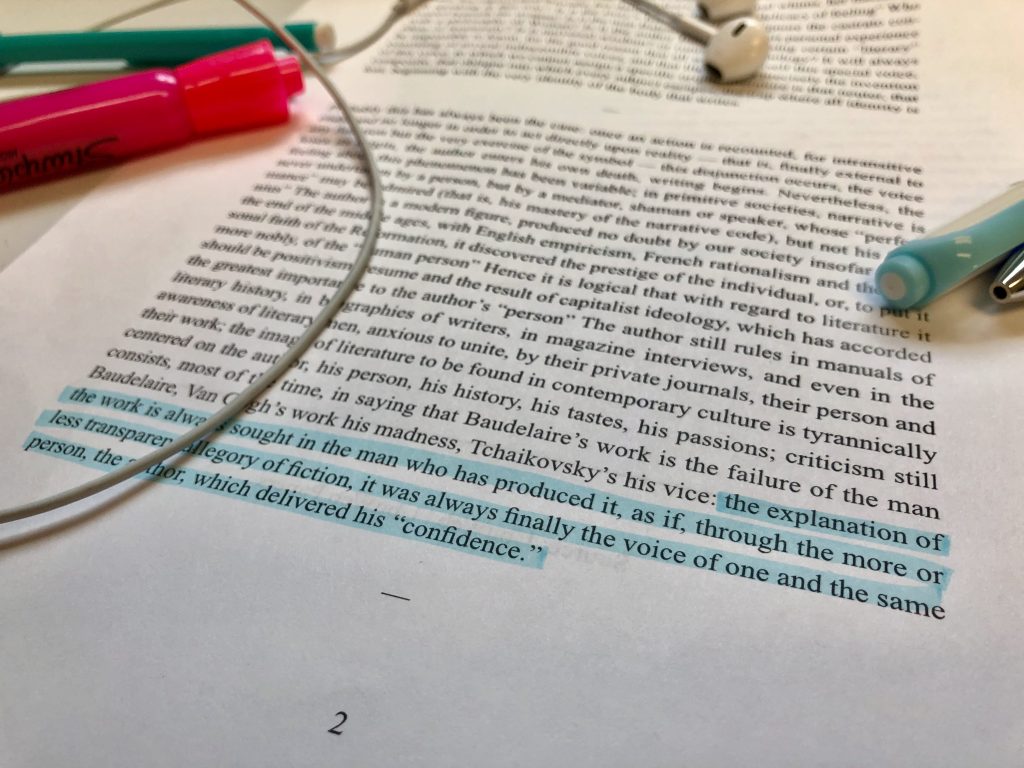 After another unnecessary trip to the bookstore last semester (I have a bad habit of buying more books than I have time to read), I finally sat down with American Gods, a Neil Gaiman novel turned Starz series, at the suggestion of Prof. McCutcheon. Though the title and premise of the book certainly correlates to religious studies as I know it, the unique introduction flaunted on the cover of the edition I happened to buy, interested me more. Unbeknownst to me — as it was the only available version at Barnes and Noble — I had purchased the “Tenth Anniversary Author’s Preferred Text”, advertised on Amazon as, “American Gods as Neil Gaiman always meant it to be”. Now, anyone familiar with Roland Barthes essay The Death of the Author (a recent obsession of mine) should take a moment to recognize exactly where this blog post is headed.
After another unnecessary trip to the bookstore last semester (I have a bad habit of buying more books than I have time to read), I finally sat down with American Gods, a Neil Gaiman novel turned Starz series, at the suggestion of Prof. McCutcheon. Though the title and premise of the book certainly correlates to religious studies as I know it, the unique introduction flaunted on the cover of the edition I happened to buy, interested me more. Unbeknownst to me — as it was the only available version at Barnes and Noble — I had purchased the “Tenth Anniversary Author’s Preferred Text”, advertised on Amazon as, “American Gods as Neil Gaiman always meant it to be”. Now, anyone familiar with Roland Barthes essay The Death of the Author (a recent obsession of mine) should take a moment to recognize exactly where this blog post is headed.
For those reading who are unfamiliar with this work (hi Mom and Dad), Barthes, a 20th century French philosopher, argued that the author ‘died’ the moment his words hit the page. Obviously Shakespeare didn’t drop out the second he penned A Winter’s Tale, but any supposed intentions he had for the script evaporated the moment they were conceived. What matters, according to this argument, is not what Shakespeare ‘meant’ by the screen direction “[Exit, pursued by a bear]”, but what the reader (or viewer in this case) decides the sudden death of a character via bear might represent (irony, sin, humor — all of the above? Nothing at all?). This essay, which seemed perfectly sensible in my mind, takes away any authority a reader might gain from claiming a particular author said “abc” to make readers realize “xyz”. As someone who deeply enjoys literature but despises the roundabout, book club conversations about what the recurring word ‘faith’ implies about infidelity in Shakespeare’s work, I find myself coming back to Barthes (for better or worse) without fail.

So now you’re caught up, and can probably tell where my mind went when reading Mr. Gaiman’s introduction to his preferred work: What’s it matter? Why should an author’s preferred text be preferable for readers too? If Barthes is correct then what the author thinks about a project he started 15 years before should not impact the way the reader interprets the ‘script’ for themselves in the present moment.
There certainly seems to be some intentionality behind this ‘new’ edition. I couldn’t help but assume (somewhat guiltily) that maybe the ten years between the initial release and the decision to republish were important, or think that perhaps the “SOON TO BE A STARZ ORIGINAL SERIES” sticker on the cover correlated to this revamp. Despite my unease, I read the preferred introduction and could not help but feel like I had some secret insight to the authors “true” intentions for his book.
This (that moment of the reader feeling authorized over other readers — like they have a more authentic version of American Gods) is exactly why I bring up Barthes’s idea. Neil Gaiman could have knocked out a few lines and added a few chapters at the request of his publisher to increase sales (bear with me, I’m not accusing the author of not honestly preferring this version of his book but making a point about assumption and authority). We, as readers, will never know Neil Gaiman’s true, innermost intentions — his original expectations for traversing the U.S. in search of inspiration (though he does touch on this in his introduction) — and though we could ask the author for his preference on the matter (chatting with Shakespeare, on the other hand, would require time travel), his responses should not dissuade readers from thinking critically about the author’s hand in stimulating intentional reactions from his readers. Readers that include Neil Gaiman himself as he rereads and re-edits his work ten years after its inception.